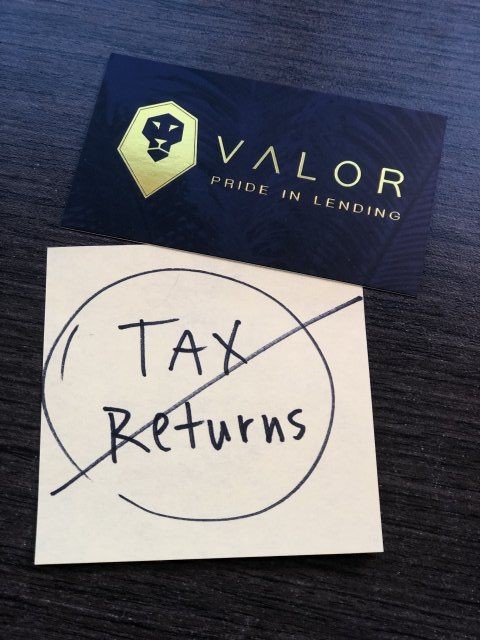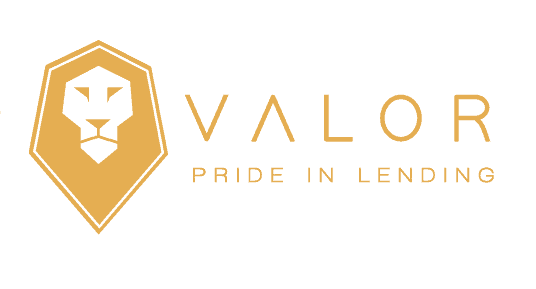The HOLY GRAIL stated income loan programs are here. Valor Lending Group has programs geared to benefit self-employed individuals, gig workers, investors, and independent contractors. Since 2020 we have seen a surge in the “gig working” economy, there has been millions of Americans that have tried “gig working” and now 36% of US workers are dabbling in and succeeding in gig work, that is more than one-third of US workers. The typical 9AM-5PM job is slowly moving out of popularity and the new trend of working is for yourself. Who doesn’t want to work on their own time with no cap on the number of hours they can put in? Uber, Lyft, Etsy, being social media influencers and really any home-based business is the future for Americans. This career choice is climbing to the top of the charts, and it is only expected to keep growing. Unfortunately, most mortgage industry automated underwriting processes are built towards borrowers with annual W2’s and pay stubs which is not beneficial to the new age self-employment.
Have no fear self-employed individuals, gig workers, investors, and independent contractors because this is where the stated income loan programs really Shine. These loan programs do NOT require W2’s, pay stubs or tax returns. There are many different types of loan programs that fall under the Stated Income Loan tree including DSCR Loans, 12-24 month Bank Statement Loans, TRUE Stated Income Loans, P&L Loans, 1099 Loans and more. In the sections below, you will find further explanation into the differences between these programs and their benefits.
DSCR Investment Property Loan Program
A. What is a DSCR Investment Property Loan?
Traditional mortgage lending requires tax returns during the loan approval process, a DSCR investment property loan does not.
Providing tax returns does not always give an accurate portrayal of true cash flow, due to the way traditional loans are underwritten (which often applies a default vacancy factor, minimum global debt service, and other guidelines and overlays). Real estate investors and others whose tax returns do not accurately portray their financial picture can use no tax return investment property loans as a powerful financing solution.
This is a great option for real estate investors that allows qualification based on simply the cash flow of the property being financed. If the rental property is cash flow positive, that will constitute sufficient qualifying income.
Sometimes called “Investment property loans” or “rental loans,” DSCR investment property loans do not consider a borrower’s debt to income ratio in the traditional sense.
The “cash flow” is just the monthly rental amount the property brings in.
For example, a property renting for $2,000/month would be attributed to the qualifying income of $2,000/month. The main requirement for these investment property loans is that the monthly rents cover the monthly expenses (New PITIA Payment). It is that simple.
Valor Lending Group also features DSCR ‘no ratio’ loans for those properties that do not debt service.
Not only is a borrower’s income not considered in the loan application process, investment property lenders do not request income amounts, in fact there is no income verification of any kind. No letters from employers, no W2s, and no pay stubs. Again, the income of the investment property is simply the cash flow of the property.
B. Why Use a DSCR Investment Property Loan?
Traditional mortgage lenders require tax returns, W-2s, and paycheck stubs in order to determine monthly income. Salaried and hourly borrowers would require the lenders to look at gross income for qualifying purposes. But for self-employed borrowers, traditional mortgage lenders look at net income, the adjusted gross income showing on tax returns. This puts real estate investors and other self-employed borrowers at a disadvantage.
However, rental loans are a great way for real estate investors to qualify for both acquisitions and refinances, without requiring 12-24 months of bank statements or 2 years of tax returns, and without having to qualify using a debt to income ratio. (12-24 month Bank statement loans are also a great option for self-employed borrowers, to learn more about bank statement loans click here.)
Borrowers that fall outside traditional underwriting guidelines but are looking for long term loans with more attractive rates than hard money loans can use the DSCR investment property loan to their advantage. These loans do not require tax returns, income or employment, or debt to income ratio calculations.
DSCR loans provide the flexibility and lessened documentation of hard money loans, but with rates closer to traditional financing.
This is a constantly evolving area of real estate financing that offers a powerful way to grow your real estate portfolio.
C. What Does a DSCR Investment Property Loan Look Like?
1) DSCR – Debt Service Coverage Ratio
(a) Defined
The Debt Service Coverage Ratio, or DSCR, is how investment property lenders qualify borrowers for a loan. In essence, it is a comparison of the property’s monthly rental income versus monthly expenses (New PITIA Payment).
DSCR provides a basis for determining the maximum loan amount an investment property can withstand. The higher the DSCR, the higher the loan amount the property qualifies for. The monthly rents are put up against five (5) monthly expenses of the property:
- Principal
- Interest
- Taxes
- Insurance
- HOA Dues (if any)
Together, these are often called the “PITIA.”
(b) Principal & Interest
The loan principal is the total loan amount, plus any costs of the mortgage that have been financed. Loans that are paid down over a set period (called “amortizing” loans) include monthly payments towards the loan principal.
Loans also often have an interest only option meaning that each month payments are made towards interest only. In this case, no portion of the principal loan balance is paid down over the interest only period. Instead, a balloon payment in the amount of the principal loan balance is due at the end of the loan term for interest only loans or principal payments will begin being paid at the end of the interest only period.
If the loan is amortized, (i.e., principal is being paid with monthly payments), a mortgage calculator can be used to determine monthly principal and interest payments, based on a given loan size, interest rate, and amortization term.
(c) Taxes, Insurance, & HOA Dues
The next portion of the debt component of the DSCR calculation consists of taxes, insurance, and HOA dues. These are fairly self-explanatory. Calculate the monthly taxes and insurance for a refinance (or estimated monthly taxes and insurance quote for a purchase) and add in any HOA dues present.
The total of monthly taxes, insurance, and HOA dues (if any), along with principal and interest payments, make up all debts included in the no tax return investment property loan DSCR equation. It’s that simple!
(d) Example
The property is rents for $2,000/month and has the following expenses
$1,000 monthly Principal & Interest
$250 monthly Property Taxes
$120 monthly Insurance
$130 monthly HOA Dues (if applicable)
$1,500 monthly TOTAL PITIA
In this example, the DSCR = $2,000 Monthly Rent / $1,500 New Monthly PITIA = 1.33 DSCR.
No tax return investment property lenders generally want to see DSCR above 1.00, and sometimes offer better pricing if the DSCR is above 1.25-1.50.
2) Purchase vs. Refinance
Use this loan for a purchase or a refinance of real property.
For a Purchase they provide a great way to qualify for a purchase loan without tax returns, income or employment, or historical bank statements.
Refinancing, using an investment property loan, can be used to tap into a property’s equity and “cash out” the property. For example, if equity in a property increases, a real estate investor can obtain a investment property loan that provides cash in hand to be used for any business purpose.
3) Down Payment, Rates & Costs
No tax return investment property loans are long term solutions with terms of 15 or 30 years and can be fixed or adjustable.
The minimum down payment on an investment property loan is usually 20% (or minimum 20% equity for a refinance). Some lenders require up to 25% or more depending on credit, DSCR, and other factors including a reserve requirement. Larger down payments do often allow for a better rate. In other cases, we have seen up to 85% LTV’s but on a limited basis with compensating factors.
Valor allows gift funds from immediate family members for those investors that are short on liquidity.
Rates for investment property loans are generally higher than traditional loans (based on increased perceived risk to lenders). All other typical loan fees are similar, such as origination points, broker and lender fees, appraisals, title and escrow, etc.
4) Personal Credit
Although personal income and debts are not considered for a no tax return investment property loan, personal credit is considered in the loan approval process. However, this requirement is typically no more scrutinized than a hard money loan.
Lenders want to see that a real estate investor is generally able to pay their bills in a timely fashion. In addition, having more than 1 or 2 late mortgage payments in the previous year can often require a loan approval exception, which can sometimes delay the process and increase the rate.
D. Advantages & Disadvantages
1) Pros
- No tax returns required
- No employment or income required
- Personal or business income not considered
- No debt to income (DTI) ratio developed or considered
- Allows real estate investors and self-employed individuals to qualify when they otherwise cannot
2) Cons
- Larger down payment than traditional loans
- Rates are slightly higher than traditional loans (but not much more)
- Some (but not all) lenders require landlord experience
- Personal credit still plays a role
DSCR Investment Property Loan Highlights:
- No Tax Returns
- Employment NOT Required
- No Income Required
- No Debt to Income Ratio Calculated
- Cash Flow based on Subject Property rents | if property is vacant upon purchase market rents from the appraisal will be used to calculate DSCR
- SFR, Condo and 1-4 Unit
- Maximum Loan $7.5M
- Unlimited Financed Properties OK
12-24 Month Bank Statement Loan Program
A. What is a 12-24 month Bank Statement Loan?
These are not the type of loans that were prevalent in the pre-2008 financial crisis, and no longer are the days in which loan applicants can simply state their income on a loan application with virtually no due diligence conducted by the lender. After the 2008 financial crisis, the sweeping provisions of Dodd-Frank changed the industry substantially, at least in the owner-occupied residential context. Since 2010 Dodd-Frank has required lenders to document a residential borrower’s ability to repay the loan. Bank statement lenders still want to ensure borrowers can repay their mortgages; they just use bank statements to verify income as opposed to tax returns. Self-employed borrowers are able to document their ability to repay based on business deposits into their personal or business bank accounts, i.e., their true cash flow.
B. Why use a Bank Statement Loan?
1) The Difference
Traditional mortgage lenders require tax returns, W-2s, and paycheck stubs in order to determine monthly income. For salaried and hourly borrowers, the lenders look at gross income for qualifying purposes. But for self-employed borrowers, traditional mortgage lenders look at net income, the adjusted gross income showing on tax returns. This puts self-employed borrowers at a disadvantage because the typical self-employed or 1099 employee will write off as much expense as possible from their gross income on their tax returns to minimize how much they owe once tax season comes around. Borrowers still must qualify based on the income deposited over a given period, typically verified on 12 or 24 months of bank statements. The total deposits in the bank statement period are the gross income used. Once this number is established, the debt to income ratio or DTI is derived (based on the income against the new mortgage payment and current monthly minimum debt obligations i.e. credit card, car loan, student loans, etc.) to ensure the borrower can afford the addition of the mortgage loan payment. If all aspects of the borrower’s finances are within the program requirements and a DTI no higher than 55%, the lender will be able to underwrite and finance the loan. These loans are repackaged and sold on the secondary market just the same as traditional mortgage financing.
2) Qualifying
This is an incredible and expanding area of mortgages that levels the playing field for self-employed and 1099 employee borrowers, providing the opportunity to qualify without tax returns. These types of loan programs can be used for both owner-occupied, and non-owner-occupied 1-4 unit properties, the same as traditional financing allows. The best bank statement loans, borrowers still must qualify based on the income deposited over a given period, typically verified on 12 or 24 months of bank statements. The gross amount deposited in the given amount of time is then considered their “gross income” after an appropriate expense ratio is applied (if applicable). Once this number is established, the debt to income ratio or DTI is derived (based on the income against the new mortgage payment and current monthly minimum debt obligations i.e. credit card, car loan, student loans, etc.) to ensure the borrower can afford the addition of the mortgage loan payment. If all aspects of the borrower’s financial is within the program requirements and a DTI no higher than 55%, the lender will be able to underwrite and finance the loan. These loans are repackaged and sold on the secondary market just the same as traditional mortgage financing.
This is an incredible and expanding area of mortgages that levels the playing field for self-employed and 1099 employee borrowers, providing the opportunity to qualify without tax returns. These types of loan programs can be used for both owner-occupied, and non-owner-occupied 1-4 unit properties alike the same as traditional financing allows.
Bank Statement Loan Program Highlights:
- 12 and 24 month Bank Statement options available
- Up to 90% LTV (on Purchases & R/T Refinances)
- Borrower and Lender paid points available
- Must have 2 years verifiable self-employment income (must own at least 50% of the business)
- No Tax Returns
- Maximum loan amount $7.5M
- Purchase and cash-out or rate-term refinance
- 4 years seasoning for foreclosure, short sale, bankruptcy, or deed-in-lieu
- Owner-occupied, 2nd homes and non-owner occupied
What you would need for submission:
- 12-24 Months Bank Statements (business or personal)
- Copy of Business License (3 years)
- CPA Letter (stating you are 100% owner; you have been in business for 2 years and they have done your taxes for two years | Also list your current expense ratio and the CPA License Number)
True Stated Income Loan Program
What is a True Stated Income Loan?
The new age 2022 “True Stated Income” loan is different from the early 2000s. In the past, a borrower could just state their income with no verification process of any kind.
The True programs that are available for borrowers today require only proof of asset reserves.
True Stated Instead of showing your tax returns they use an alternative way of verifying your asset reserves using 1 month bank statement, that’s it.
These new programs give self-employed and W2 wage earners an alternative avenue to verifying your asset reserves, you can use both personal and business bank statements. Also, you should expect to be required to have at least a 700 credit score and usually 20% or higher for the down payment.
TRUE Stated Income Loan Program Highlights:
- Owner Occupied and 2nd Home Only
- Income not Stated
- 1 month Bank Statement
- Up to 80% LTV on Purchases & R/T Refinances
- Up to 70% cash-out
- Maximum Loan Amount $3M
- No Tax Returns
- No Employment
- No Income
- Credit worthiness is based on LTV, credit score and current liquidity
P&L Loan Program
What is a P&L Loan?
A P&L loan is beneficial and a beautiful solution for self-employed business owners. Often self-employed business owners run into problems when applying for a home loan due to their lack of income and/or high DTI (debt-to-income) ratio. This is because business owners have a unique US tax code that allows them to offset amounts of taxable income with deductions, thereby reducing their tax burden.
What is a Profit and loss statement?
A profit and loss statement is a financial document that shows how your revenue relates to your costs and expenses, which is used to often provide an accurate assessment of the borrowers true income. This tool is used to evaluate profit and determine the revenues and expenses. This statement is the tool that lenders will use to qualify business owners for a mortgage loan.
P&L Loan Program Highlights:
- Primary Residence, 2nd Home, Investment
- Maximum Loan Amount $12M
- Eligible Property types: SFR, 2-4 Units, Condo (FNMA Warrantable), Non-Warrantable Condo, Condotel
- Ineligible Property Types: Agricultural, Mixed-use, Co-op, Rural
- FICO 660+
- Up to 80% LTV (purchase and rate and term refinance)
- Up to 80% LTV (cash-out)
- Cash out may be used for reserves
- P&L must be prepared by (CTEC, CPA, or EA)
1099 Income Loan Programs
A 1099 income loan program is beneficial and another amazing solution for self-employed 1099 workers, including gig workers, contractors, freelancers, and self-employed borrowers. Individuals that file W-9s run into issues qualifying for conventional mortgage loans. 1099 loan programs allow these individuals to use there 1099 earning statements to qualify for a mortgage loan instead of using tax documents.
1099 Income Loan Program Highlights:
- Owner-Occupied, 2nd Homes, and Investment
- Maximum Loan Amount $7.5M
- Up to 85% LTV
- Credit scores starting at 640
- No tax returns required
- Most recent one or two years 1099 plus year to date earning statement allowed
- Year to date earning statements
- 1099s must be from a single employer
- Borrower must be self-employed working for the same employer for two years
- Two years seasoning for foreclosure, short sale, bankruptcy, or deed-in-lieu
- Non-warrantable condos allowed
- Loan amounts greater than or equal to $1,500,000, a borrower paid second appraisal must be obtained
VALOR LENDING GROUP OFFERS EVERY MORTGAGE LOAN IN THE BOOK!
If you would like to discuss more details on qualification and requirements, we are available to answer any questions you may have.
Recap of our Loan Products:
- Hard Money Loans (20% down / minimal documentation) Typically Fund in 7-10 days.
- Stated Income Loans (Great for business owners and self-employed) No tax returns!
- 100% financing is available (we can cross collateralize other properties if there is enough equity)
- Valor VA Home Loan 100% financing up to $1.5M
- Investor Cash Flow Loan – No tax returns or DTI calculation! Based on subject property cash flow
- Flipper & Rehab Loans (Flip a property with one of our many options)
- 2nd Position Loans up to $5mm
- Raw Land & Lot Loans
- Ground up Construction for spec homes, custom homes and commercial ground up
- Farms, Vineyards, Ranches and Agricultural Properties (25-30% down)
- 10% down Jumbo’s with NO MI up to $2M
- Manufactured Housing / Mobile Homes (20% down / 600+ credit score)
- Acreage Properties
- Commercial Loans up to $500M
- 3% & 5% down Conventional Loans – LPMI (Lender paid mortgage insurance)
- Foreign Nationals Loans (no social security or residency required)
We also offer:
- 10, 15, 20, 25, 30 Year Fixed, Conventional Conforming Loans
- High Balance Conforming aka Super Conforming
- Jumbo’s to $20M / Super low rates! / 10% down Jumbo to $2M
- FHA, USDA
- ARM’s
- Reverse mortgages up to $3M Value
- Refinance including Cash Out
We look forward to the opportunity to serve you!
**Rates and terms subject to change without notice**
For the most up to date mortgage news visit: Mortgage News Daily
Check out our Google Reviews










